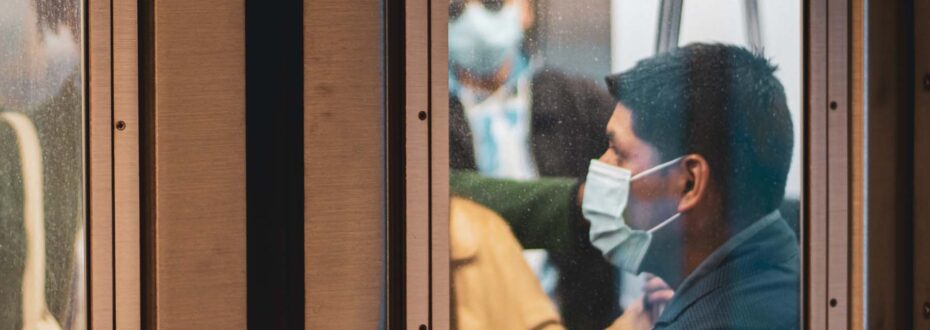By Andy Bell
Across the UK, actions taken by governments to reduce the risk of Covid-19 spreading are being removed in pursuit of greater ‘normality’ in our lives.
Recent advice from the UK Government’s Scientific Pandemic Insights Group on Behaviours (SPI-B) committee provides some important pointers to how these measures need to be taken and the risks they bring with them. As with the imposition of restrictions and safety measures, so their removal has implications for our mental health that need to be considered alongside those for our physical health and safety.
The document notes, for example, that the removal of free Covid tests and self-isolation requirements risks creating heightened anxiety and stress among people who are clinically vulnerable. Our research has already found that people with long-term illnesses are more likely to have poor mental health and have struggled with their emotional wellbeing during the pandemic. Being less safe or more excluded from society (to protect from coronavirus) may make the gap bigger still for many, especially without financial safety nets at a time of rising living costs.
Greater pressure to attend work and school are also cited as risks for many people. Schools’ and employers’ expectations may create extra pressure – most notably so far in schools, where attendance policies are becoming more punitive. Returning to face-to-face work and learning has not been an easy process for everyone. Allowing people to move at their own speed as much as possible and creating schools and workplaces that are emotionally as well as physically safe will make a big difference.
The SPI-B document speaks in several places about the need for clear, consistent communication. This is not just to ensure people continue to take steps to keep each other safe but to prevent the exploitation of people’s confusion by ‘far-right and anti-vax groups’ and to acknowledge ‘the collective loss that has been experienced as a result of the pandemic’. This means recognising the trauma and commemorating the loss that has been felt in families and communities across the country. Compassion is key: while it may be tempting to seek to ‘move on’ and never look back, we need to create opportunities for mourning, reflection and recovery in communities that have suffered so much over the last two years.
Our research throughout the pandemic has shown that the experiences of the last two years have changed us as a society and posed great challenges to our mental health, exacerbating inequalities and fracturing relationships and social ties. There is no going back to the ‘old normal’. We have been through a collective trauma, and for many that has meant profound loss, prolonged anxiety and an uncertain future. This cannot just be switched off.
Many local authorities are already taking the lead on this – looking at ways of supporting communities to recover and to process the traumatic experiences they have been through. This will be essential in the coming months and years as we negotiate the aftermath of the pandemic. It’s fundamental to the public’s health at a time of continued risk and uncertainty.







